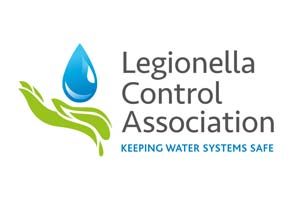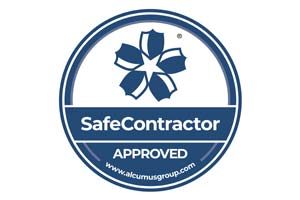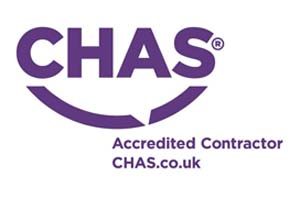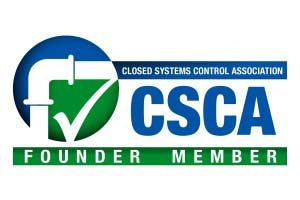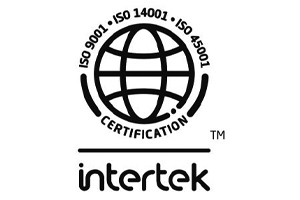Legionella Control and Compliance in Data Centres: A Critical Aspect of Infrastructure Management
Legionella Control and Compliance in Data Centres: A Critical Aspect of Infrastructure Management

"Effective Legionella control in data centres demands a comprehensive approach that combines regular monitoring, proper maintenance, staff training, and modern technology solutions. "
Legionella Control and Compliance in Data Centres: A Critical Aspect of Infrastructure Management
With decades of expertise in water hygiene and Legionella control, Total Environmental Compliance (TEC) has established itself as a leading expert in safeguarding water systems across the UK. Having successfully served more than 80,000 plus sites and working with some of the country’s leading businesses, we understand the unique challenges faced by different sectors, particularly in complex environments like data centres.
In this blog post, we’ll explore the critical aspects of Legionella control in data centre environments, examining the specific challenges these facilities face, the essential control measures required, and the best practices for maintaining compliance. We’ll draw on our extensive industry experience to provide practical insights into effective water safety management for these mission-critical facilities.
Understanding the Risk
Data centres are critical infrastructure facilities that require careful attention to all aspects of safety and compliance, including water safety management. Data centres face unique challenges when it comes to Legionella control. These facilities typically operate complex cooling systems that often incorporate cooling towers and water storage. The presence of multiple water systems operating at varying temperatures, combined with the need for 24/7 operation with minimal downtime, creates a high-stakes environment where system failures can have significant consequences.
Key Areas of Concern
Cooling Towers
Cooling towers represent perhaps the most significant risk area in data centres. These systems operate at ideal temperatures for Legionella growth, typically between 20°C to 45°C. The nature of their operation means they create water droplets that can become airborne, necessitating regular maintenance and monitoring alongside consistent chemical treatment to ensure safety.
Water Storage Systems
Data centres typically maintain significant water reserves for various purposes. These include backup cooling systems, fire suppression systems, and domestic water supplies. The management of these storage systems requires particular attention to prevent stagnation and bacterial growth, which could compromise the safety of the facility.
Essential Control Measures
Risk Assessment: A comprehensive risk assessment forms the foundation of effective Legionella control in data centres. This should encompass regular assessment of all water systems, identification of potential risk areas, documentation of control measures, and review of emergency procedures. The assessment process should be thorough and regularly updated to reflect any changes in the facility’s infrastructure or operations.
Monitoring and Testing: Monitoring and testing represent crucial ongoing activities in maintaining water safety. This includes regular temperature monitoring of water systems, systematic water sampling and analysis, and continuous monitoring of chemical treatment levels. All testing results must be meticulously documented to ensure compliance and enable trend analysis.
Regular Maintenance: Maintenance programmes should be robust and proactive. Regular cleaning and disinfection of cooling towers, inspection and maintenance of water storage tanks, and servicing of temperature monitoring devices are essential components. The proactive replacement of aging components helps prevent system failures and maintains optimal performance.
Staff Training: Staff training plays a vital role in maintaining water safety. Personnel should receive comprehensive Legionella awareness training, including emergency response procedures and documentation protocols. Regular updates on best practices ensure that staff knowledge remains current and effective. At TEC, we provide face-to-face basic Legionella training and flexible online courses, allowing employees to revisit the learning content as often as needed to ensure the best learning experience for everyone.
Technology Solutions
The modern data centre can benefit significantly from advanced technology solutions in managing Legionella risk. Remote temperature monitoring systems can provide 24/7 data, while automated chemical dosing systems ensure consistent treatment.
Real-time water quality monitoring and digital compliance management platforms further enhance the ability to maintain safe and compliant operations.
Compliance Requirements
Data centre operators must navigate a complex landscape of compliance requirements. The Health and Safety at Work Act 1974 provides the overarching framework, while the Control of Substances Hazardous to Health (COSHH) Regulations 2002 and the HSE’s Approved Code of Practice (ACoP) L8 offer specific guidance on Legionella control. These requirements must be integrated with specific industry standards for data centre operations.
Implementation Strategy
The development of a written scheme of control provides the backbone for effective Legionella management. This document should detail clear procedures for all routine tasks, emergency response protocols, and documentation requirements. Regular review and updates ensure the scheme remains current and effective.
Emergency planning deserves particular attention in the data centre environment. Clear procedures for Legionella detection must be established, alongside business continuity planning and communication protocols. Regular testing of emergency responses helps ensure readiness for potential incidents.
Effective Legionella control in data centres demands a comprehensive approach that combines regular monitoring, proper maintenance, staff training, and modern technology solutions. The investment in proper water safety management represents a fraction of the potential costs associated with system failures, health incidents, or compliance breaches.
Working with qualified water safety specialists and maintaining up-to-date control measures should be a key priority for all data centre operations. The complex nature of these facilities, combined with their critical role in modern infrastructure, makes effective water safety management not just a regulatory requirement, but a fundamental operational necessity.
Partner with Water Safety Experts
As your trusted partner in water safety and compliance, TEC brings decades of specialised experience to support your data centre operations. Our team of qualified engineers and technicians provides comprehensive management solutions, from risk assessment and maintenance programmes to emergency response services.
Contact TEC today to discuss your data centre’s needs and discover how our expertise can protect your operations. Call us at 0151 257 9302 or email info@tecompliance.co.uk to schedule a consultation with our specialists.


